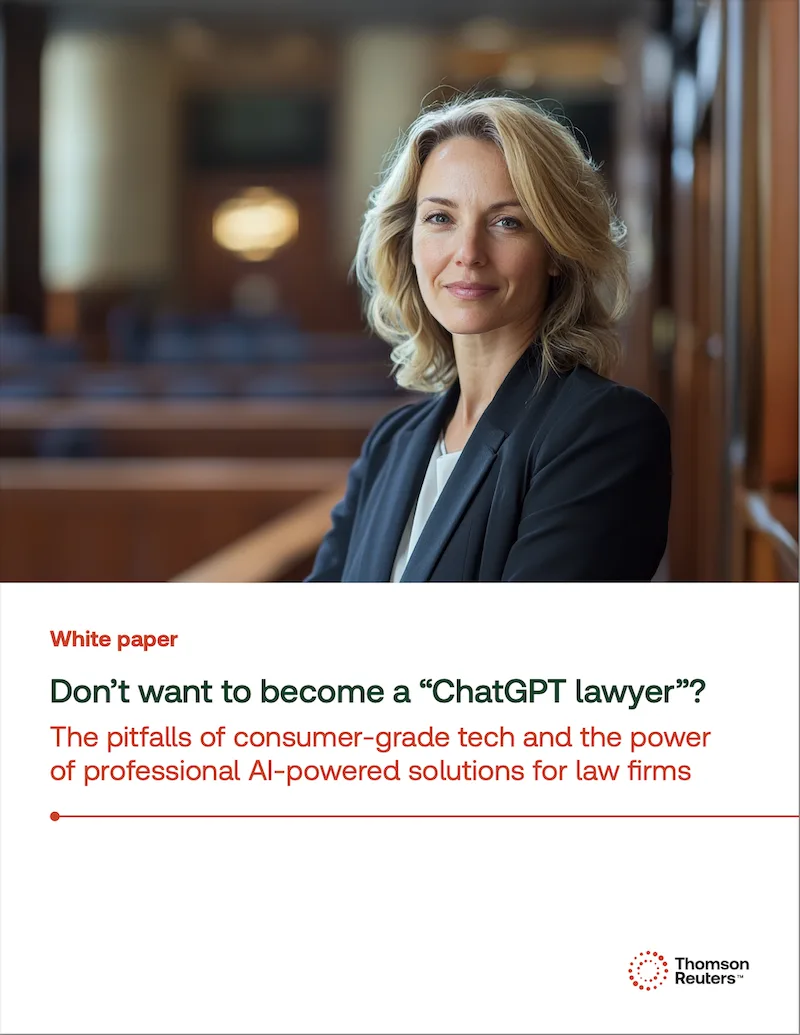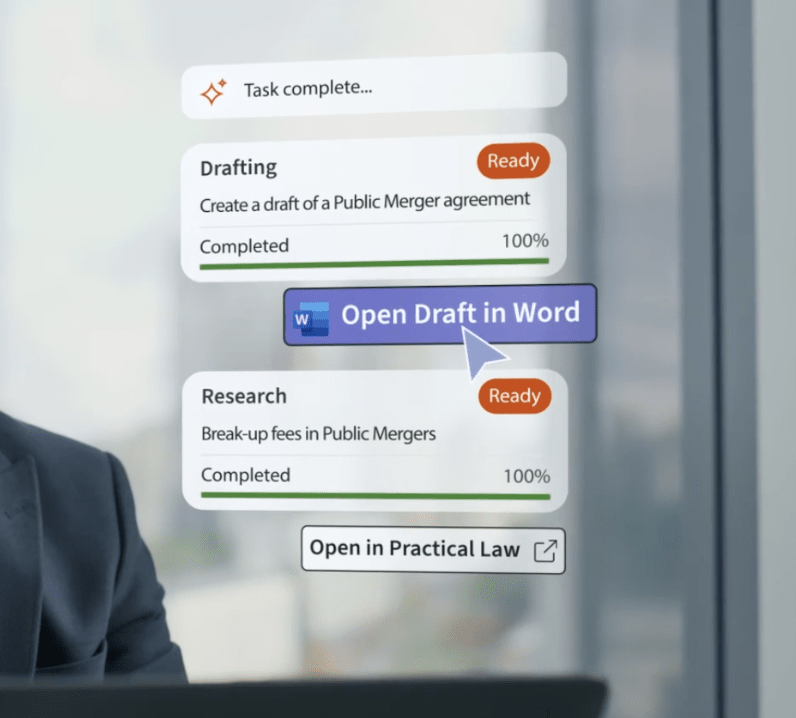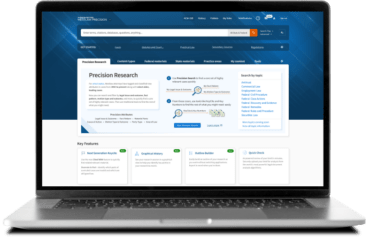Streamline your workflow and increase your accuracy during the litigation process
Highlights
- AI technologies like Large Language Models (LLMs) and Retrieval-Augmented Generation (RAG) are modernizing legal research for litigators, automating repetitive tasks to allow more time for high-value, judgment-driven work.
- Westlaw Advantage utilizes AI with tools such as Deep Research, Litigation Document Analyzer, and Claims Explorer to accelerate the litigation process from research and strategy to argument assessment and claims identification.
- While AI provides a powerful assistant for comprehensive and rapid research grounded in trusted content, it is intended to complement, not replace, the indispensable expertise and strategic judgment of a legal professional.
Jump to ↓
Litigating with agentic AI in Westlaw Advantage
Complementing professional judgment with AI

White paper
The pitfalls of consumer-grade tech and the power of professional AI-powered solutions for law firms
View white paper ↗The basics
Understanding AI may seem like staring into a bowl of alphabet soup. Here are brief explanations of two fundamental concepts:
Large Language Models (LLMs) are machine learning algorithms that predict language based on input data. Because LLMs predict language patterns, they might also return irrelevant or inaccurate information, often called hallucinations.
Retrieval-Augmented Generation (RAG) uses AI to generate text by first retrieving relevant documents and then using those documents as inputs to the AI. The quality of RAG responses depends on the discovery process and the legal content used.
When these two technologies work together, as they do in Westlaw Advantage, the result is a stronger, more transparent, and higher quality output.
Litigating with agentic AI in Westlaw Advantage
Preparing a solid case requires a multitude of tasks, and Westlaw Advantage can help with many of the most time-consuming ones. With Westlaw Advantage, you can quickly go from research to strategy, confident your results are as thorough and accurate as possible. By applying the power of agentic AI to trusted industry-leading content, Westlaw Advantage activates and employs its entire set of capabilities for you, revolutionizing the way you conduct research. Litigators may use AI tools to:
- Move from research to strategy faster. Deep Research uses agentic AI to analyze vast amounts of legal content, surface key precedents, and deliver clear, transparent insights — all in a fraction of the time traditional research requires. Spend less time sorting through results and more time building winning arguments, backed by comprehensive, accurate answers you can trust.
- Quickly assess arguments — both your own and opposing counsel’s. Litigation Document Analyzer reviews entire documents to identify both inaccurate citations and larger mischaracterizations of law. It automatically reviews opposing arguments, suggests counterarguments with supporting authority, and distills complex complaints into clear, actionable insights. The result: A quicker and more confident assessment of cases.
- Identify applicable claims. Finding claims with traditional research methods can be difficult and time-consuming. With Claims Explorer, you can enter the facts of a case into the platform and receive a list of potential claims or counterclaims to explore. It can advise what claims are stronger, suggest what must be proven for the claim, and may suggest additional claims that could even support extraordinary damages or attorney fees if additional facts are present.
- Assess and compare laws across US jurisdictions. AI Jurisdictional Surveys can evaluate and compare laws on topics across US jurisdictions to establish litigation strategies, understand compliance-related jurisdictional differences, identify emerging policy trends, and advise clients on business decisions. These surveys can strengthen a legal argument by examining how other jurisdictions have addressed an issue.
Complementing professional judgment with AI
Like all AI tools in legal practice, using AI for legal research should be considered a start. When it’s grounded in trusted content and trained by legal experts, AI tools can identify questions you didn’t know to ask and find answers that you didn’t know existed.
But AI for legal research should be considered an assistant, not a replacement for legal professionals. It doesn’t, and shouldn’t, replace the experience and expertise of a lawyer to determine a strategy customized for a client. It can, however, move you towards answers faster and provide confidence in the completeness of your research. To fast-track your legal research, request your free trial of Westlaw Advantage.

CoCounsel Legal
AI, trusted content, and expert insights from Westlaw and Practical Law resources
Jumpstart legal research ↗











